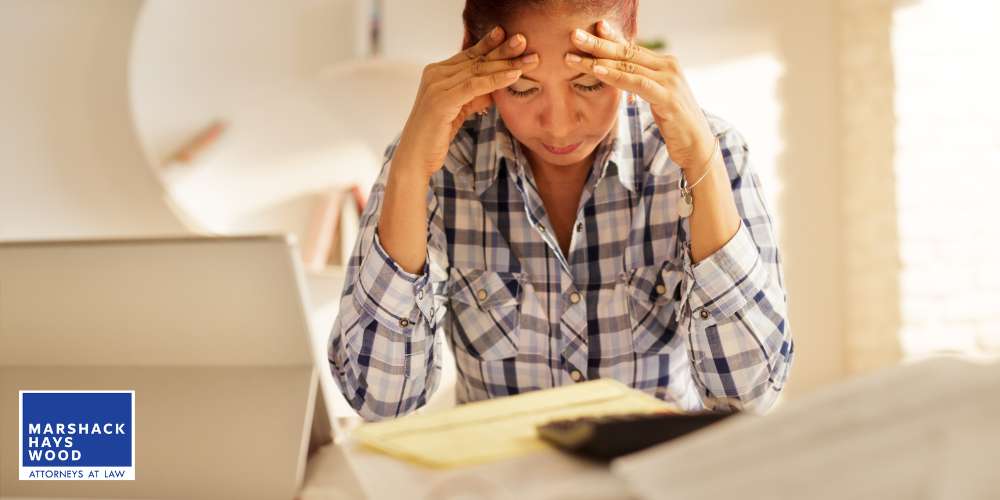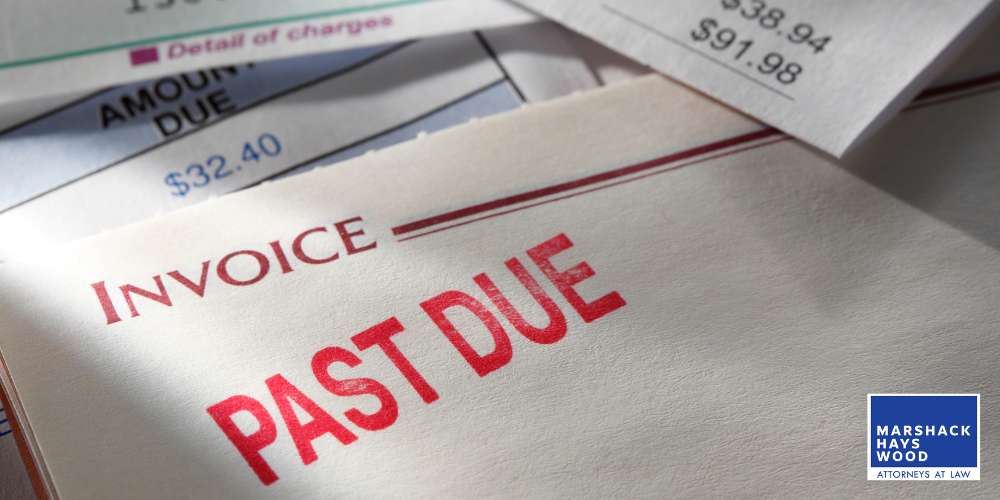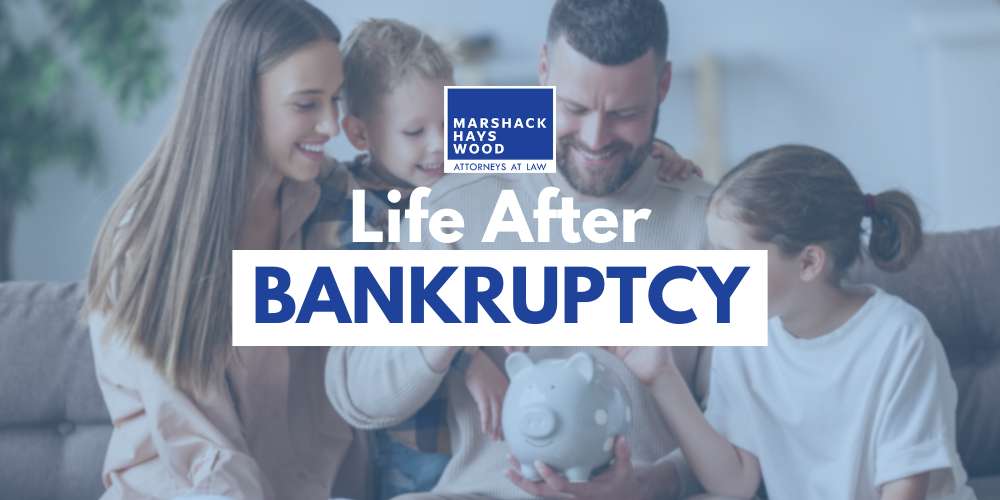The journey toward financial recovery after bankruptcy can often feel daunting, but it opens a new chapter filled with opportunities for renewal and growth. At Marshack Hays Wood, our Orange County bankruptcy attorneys understand the complexities and emotional toll of navigating life after bankruptcy.
We believe in empowering our clients with the tools and knowledge necessary to rebuild a stable financial foundation, ensuring a brighter, more secure future. Our bankruptcy attorneys can provide practical strategies and insights to help you regain control of your finances and move forward confidently.
To schedule a free consultation at Marshack Hays Wood, call (949) 333-7777 or reach out online today.
Tips for Recovering After Filing for Bankruptcy
Rebuilding your financial life following bankruptcy is a journey that requires patience, resilience, and informed strategies.
The bankruptcy attorneys at Marshack Hays Wood offer practical tips for recovering after filing for bankruptcy to help you pave a path toward a stable and prosperous financial future. Each tip is tailored to foster healthy financial habits, rebuild your credit scores, and navigate the post-bankruptcy landscape more easily.
Our goal is to assist you through bankruptcy and empower you with the knowledge and resources necessary to create a strong financial status.
What Happens When You File for Bankruptcy in Orange County?
Filing for bankruptcy in Orange County follows federal laws but also involves specific local procedures. Here’s an overview of what typically happens when someone files for bankruptcy in Orange County:
- Choose the Right Bankruptcy Filing: The most common types are Chapter 7 (liquidation) and Chapter 13 (reorganization). The bankruptcy attorneys at Marshack Hays Wood will assess your financial situation and help you determine which filing is right for you.
- Credit Counseling: You must complete a credit counseling course from an approved agency before filing. This federal requirement must be done within 180 days before filing.
- Prepare Documentation: You must compile extensive financial documentation, including lists of assets, debts, income, expenditures, and a detailed financial statement.
- Filing the Bankruptcy Petition: The bankruptcy process begins when you or your attorney file a bankruptcy petition with the Orange County bankruptcy court. This filing includes your financial documents and the credit counseling certificate.
- Automatic Stay: Once you file, an automatic stay goes into effect. This temporarily stops most creditors from pursuing collection actions against you, including lawsuits, wage garnishments, and harassing phone calls.
- Meeting of Creditors (341 Meeting): A meeting of creditors is held about a month after filing. You must attend this meeting, where the bankruptcy trustee and creditors can ask you questions about your finances and the information in your bankruptcy documents.
- Bankruptcy Trustee: In Chapter 7, a trustee may liquidate non-exempt assets to pay creditors. In Chapter 13, the trustee oversees your repayment plan, which typically lasts 3-5 years.
- Credit Counseling Course: Before your bankruptcy can be discharged, you must complete a debtor education course from an approved agency.
- Discharge of Debts: In a successful Chapter 7 case, most of your unsecured debts will be discharged. In Chapter 13, the remaining debts may be discharged at the end of your repayment plan.
- Life After Bankruptcy: After your bankruptcy discharge, focus on rebuilding credit and managing your finances responsibly.
The bankruptcy filing process can be extremely complex and leaves little room for errors. That’s why those filing for bankruptcy should consider working with the attorneys at Marshack Hays Wood. Not only will your bankruptcy attorney help you navigate the process, but they will also help you adjust to life afterward to avoid future financial struggles.

What is Life After Bankruptcy Like?
Life after bankruptcy, whether through Chapter 7 or Chapter 13, marks a significant turning point on the road to financial recovery. For those emerging from Chapter 7’s liquidation process or Chapter 13’s structured repayment plan, the journey ahead involves challenges and opportunities for rebuilding and growth.
Individuals who have completed the bankruptcy process should understand the impacts on their credit report, lifestyle, and financial management changes, the emotional and practical aspects of starting over, and the strategic steps they can take to ensure a stable and prosperous future. Knowing what life looks like after bankruptcy is crucial in setting realistic expectations and laying the groundwork for a brighter financial future.
Life After Bankruptcy Chapter 7
Many individuals feel relieved after completing a Chapter 7 bankruptcy since most of their unsecured debts, like credit card debt and medical bills, have been discharged. However, there are challenges and opportunities once this process is complete.
This bankruptcy filing immediately affects a person’s credit score and remains on their credit report for ten years. This can make obtaining new credit difficult, leading to higher interest rates and stricter lending standards. However, this period also offers a crucial opportunity for financial restructuring.
Tools like secured credit cards and small, manageable loans can be vital as you work to rebuild credit. These should be used carefully, focusing on making consistent, on-time payments to improve your credit score gradually. Education on financial management is pivotal during this time, with many benefiting from credit counseling or financial literacy programs.
What Can You Not Do After Chapter 7 Bankruptcy?
After filing for Chapter 7 bankruptcy, there are several actions and activities that are restricted or not advisable. These limitations are important to consider as they affect your financial recovery and legal standing. Here’s a list of what you generally cannot or should not do after Chapter 7 bankruptcy:
- Accumulate New Debt: It’s not advisable to accumulate new debt. This could be seen as an act of bad faith, especially if it occurs right after discharge.
- Hide Assets or Income: Failing to disclose assets or income during bankruptcy is illegal. Even after the discharge, you must be transparent about your financial situation, especially if you acquire new assets or experience a change in income.
- Ignore Remaining Debts: Debts like alimony, child support, some taxes, and student loans are not discharged in bankruptcy. Failing to make payments on these debts can have legal consequences.
- Rapid Credit Applications: Applying for multiple credit accounts or loans immediately after bankruptcy can harm your already lowered credit score since credit card companies will view you as a high-risk borrower.
The bankruptcy attorneys at Marshack Hays Wood will guide you on what you can and cannot do after filing and completing your bankruptcy. It’s crucial to be mindful of these restrictions for successful financial recovery after Chapter 7 bankruptcy.
Life After Bankruptcy Chapter 13
A Chapter 13 bankruptcy includes a structured repayment plan, typically lasting 3 to 5 years. During this time, individuals are often required to live on a strict budget, carefully allocating their income to living expenses and debt repayment.
Your credit score will have taken a hit, but it only lasts seven years compared to ten years with Chapter 7. As your credit score improves, you’ll gradually regain access to credit. This might start with a secured card or a personal loan with higher interest rates.
It’s important to approach these new credit opportunities carefully. This means maintaining low balances, making timely payments, and not overextending your credit use.
What Can You Not Do After Chapter 13 Bankruptcy?
Like Chapter 7 bankruptcy, you’ll need to be cautious about spending once you’ve completed Chapter 13. While Chapter 13 often helps restructure and manage debt through a repayment plan, certain actions can jeopardize your fresh start. Here are some things to avoid after Chapter 13 bankruptcy:
- Overusing Credit Cards: Getting new credit cards and exceeding the credit limit can lead you back into a cycle of debt.
- Apply for a Conventional Mortgage Loan: You must wait at least two years before applying for a conventional mortgage loan once you’ve completed your Chapter 13 bankruptcy. With Chapter 7, you have to wait four years.
- Applying for a Car Loan: The same rule as applying for a mortgage loan goes for applying for a vehicle loan.
- Failing to Pay Debts: Debts like certain taxes, student loans, or alimony might not be discharged in Chapter 13. It’s important to understand what debts are discharged and which ones remain.
Being mindful of these actions and continuing disciplined financial habits are key to maintaining a stable post-bankruptcy life.

What to Do After Receiving Your Bankruptcy Discharge
Whether you have completed Chapter 7 or Chapter 13, your actions in the aftermath are vital in rebuilding your credit, managing your finances, and avoiding pitfalls. Our bankruptcy attorneys can guide you through essential practices such as reviewing your credit report, repairing your credit history, budgeting wisely, and setting achievable long-term financial goals.
Save All Bankruptcy Paperwork
Keeping all the paperwork following your bankruptcy case is important. This documentation, including the bankruptcy petition, discharge papers, and all correspondence, is the official record of your bankruptcy proceedings.
There are several reasons why it’s important to keep your bankruptcy paperwork. For example, if a debt collector contacts you and claims you have an outstanding debt, you can refer back to your bankruptcy to prove the debt was discharged. Other reasons to keep your bankruptcy paperwork are for filing taxes and to rebuild your credit history.
Maintain a Steady Job
Consistent employment provides a regular income stream, which is essential for meeting living expenses and managing any remaining debts. It also plays a crucial role in restoring your financial credibility.
A stable job demonstrates to potential creditors and lenders that you have a reliable source of income, increasing your chances of being approved for credit and securing loans with more favorable terms in the future. Plus, a steady job can improve your credit score over time, as it provides a way to make timely payments and potentially save money.
Pay Bills on Time
On-time payments greatly improve your credit score, as they are a major factor in your payment history. Consistently meeting these financial obligations on schedule shows your commitment to financial responsibility to creditors and lenders.
This is especially important in the post-bankruptcy period, where establishing a positive payment track record can aid significantly in the gradual rebuilding of your credit.
Rebuild Your Credit
One effective strategy for rebuilding credit is to obtain a secured credit card, which requires a cash deposit and helps prevent overspending due to its lower credit limit. As you progress, consider applying for small, manageable loans, but only to the extent that you can comfortably afford the repayments.
Monitor Your Credit Reports
Regularly checking your credit reports from the three credit reporting agencies, Equifax, Experian, and TransUnion, helps you stay informed about your credit status and ensures that the information presented by each credit bureau is accurate and up-to-date.
Errors or discrepancies on your credit report can hinder your credit repair efforts, so prompt identification and dispute of any inaccuracies are vital.
Consider a Secured Credit Card
Using a secured card responsibly can be a powerful tool in re-establishing your credit. It involves making small purchases that you can pay off monthly and ensuring on-time payments. These habits reflect positively on your credit score, demonstrating financial responsibility and reliability.
Additionally, secured credit cards often report to all three major credit bureaus, ensuring that your good credit behavior contributes to improving your overall credit score. Over time, maintaining a positive payment history on your secured credit card can help increase your chances of qualifying for a traditional credit card.
Keep an Emergency Fund
An emergency fund is a savings account that covers unforeseen expenses like medical emergencies, urgent home repairs, or unexpected job loss. After a bankruptcy, an emergency fund is even more important as it can help prevent falling back into high-interest debt during tough times.
Placing your emergency fund into a high-yield savings account is a strategic choice. These accounts typically offer higher interest rates than standard savings accounts, allowing your emergency fund to grow faster while keeping the funds readily accessible.
Correct Credit Report Inaccuracies with Credit Reporting Agencies
Inaccuracies in your credit report can negatively affect your credit score and ability to obtain credit, secure housing, or even certain employment opportunities. To ensure your credit report accurately reflects your financial history, especially after a bankruptcy discharge, you should:
- Obtain Your Credit Reports: Review your credit reports from the three major credit bureaus. You are entitled to a free report from each agency once a year.
- Review for Inaccuracies: Common inaccuracies include outdated information, misreported payments, duplicate accounts, or debts listed that were discharged in bankruptcy.
- Gather Supporting Documents: Gather any documents supporting your claim if you find errors. This might include bank statements, discharge papers from bankruptcy proceedings, or correspondence with creditors.
- File a Dispute: Each credit bureau has a process for disputing errors on your report. This is usually done online, by mail, or over the phone. Clearly explain the mistake and include copies (not originals) of any supporting documentation.
- Follow Up on Disputes: Credit bureaus typically investigate disputes within 30 days. Follow up to ensure the inaccuracies are corrected. If a dispute is not resolved to your satisfaction, you can ask to include a statement in your report about the dispute.
- Check for Updates: After making corrections, check your credit reports to ensure the changes are accurately reflected.
Correcting inaccuracies on your credit report is not just about improving your credit score; it’s about ensuring your finances are accurately represented. This becomes even more significant post-bankruptcy as you work towards rebuilding your credit score.
How Long Does It Take to Recover from Bankruptcy in Orange County?
The amount of time it takes to recover from bankruptcy in Orange County can vary widely depending on individual circumstances. Factors such as the type of bankruptcy filed, the extent of debt discharged, and one’s commitment to financial management all play a role.
How Long Will Bankruptcy Stay on My Credit Report?
Generally, a Chapter 7 bankruptcy remains on your credit report for ten years, while a Chapter 13 bankruptcy typically remains for seven years. However, the impact of bankruptcy on your credit score diminishes over time, and you can begin rebuilding your credit immediately after discharge. With responsible financial practices, many individuals can start seeing improvements in their credit scores within a couple of years.

What Not to Do After Bankruptcy
After bankruptcy, it’s crucial to be mindful of what not to do to avoid potential financial setbacks. After the bankruptcy process is complete, it can be easy for individuals to get back into their old spending habits.
You must avoid accumulating new debt too quickly. After the hard work you’ve put into getting a fresh financial start, overspending on your credit card can put you back where you started.
Throughout the bankruptcy process, individuals have many opportunities to learn about financial planning and budgeting. In fact, some courses are required as part of the bankruptcy process. Part of budgeting and planning is to set up an emergency fund that you can lean on when times get tough.
Many individuals are forced into bankruptcy following medical emergencies or other unexpected expenses. Every month, putting money in a savings account can ensure you’re prepared for any emergency.
Other things to remember after your bankruptcy case is discharged are monitoring your credit report to catch any errors, planning appropriately if you need to make any large purchases, and keeping your long-term financial goals in mind. It can be easy to fall back into old spending habits, but staying diligent is critical to maintaining the financial stability the bankruptcy has provided.
Life After Bankruptcy FAQs
Whether you’re curious about the impact of bankruptcy on your credit, how to rebuild financial stability, or what to expect regarding financial opportunities, this comprehensive guide addresses your concerns.
Can I Get a Credit Card After Bankruptcy?
Yes, you can get a credit card after bankruptcy. Two main types to consider are secured credit cards, which require a cash deposit as collateral, and unsecured credit cards, which may be harder to qualify for immediately. It’s important to research card offers for poor credit and use any new credit responsibly to rebuild your financial standing.
How Long After Filing Bankruptcy Can I Buy a House?
The timing to buy a house after bankruptcy varies based on the type of bankruptcy filed. For Chapter 7, it’s typically 2-4 years, while Chapter 13 may allow for an FHA loan after one year of on-time payments with court approval. During the waiting period, you can work on rebuilding your credit to improve your chances of being approved for a better loan.
Can You Live a Normal Life After Bankruptcy?
Yes, you can live a normal life after bankruptcy. Bankruptcy is a legal process that gives individuals a fresh start to regain control of their finances. With responsible financial management, budgeting, and credit-rebuilding efforts, many people gradually repair credit, achieve financial stability, and lead normal lives.
Can I Rent an Apartment After Bankruptcy?
Yes, you can rent an apartment after bankruptcy. Landlords may conduct a credit check, and your credit score may be lower, but bankruptcy alone doesn’t disqualify you. Be prepared for larger security deposits, or consider having a co-signer with a strong credit history. Explaining your bankruptcy and showcasing improved financial responsibility can help the rental application process.
Can I Get a Job After Bankruptcy?
Yes, you can get a job after bankruptcy. Bankruptcy is related to your financial situation and does not affect your employability. Employers typically evaluate job candidates based on their qualifications, skills, and experience rather than their financial history.
While some employers may conduct background checks, bankruptcy alone is unlikely to affect their hiring decisions. It’s essential to focus on your qualifications and demonstrate your skills and expertise during the job application and interview process.
Can I Buy a Car After Bankruptcy?
Yes, you can buy a car after bankruptcy. There are auto financing options for those with poor credit, though they may have higher interest rates. A larger down payment can be helpful, and working on rebuilding your credit improves your financing prospects. A co-signer with good credit can also increase your approval chances if needed.

Contact the Orange County Bankruptcy Lawyers at Marshack Hays Wood Today
While bankruptcy may initially impact your credit and financial options, it doesn’t define your future indefinitely. By adopting responsible financial practices, budgeting, rebuilding credit, and making informed decisions, you can regain control of your finances and move toward a more secure and stable future.
Remember that bankruptcy is a tool to overcome financial challenges. With dedication, perseverance, and the assistance of Orange County bankruptcy attorneys at Marshack Hays Wood, you can achieve financial stability and continue living a fulfilling life.
To schedule a consultation, call Marshack Hays Wood today at (949) 333-7777.

